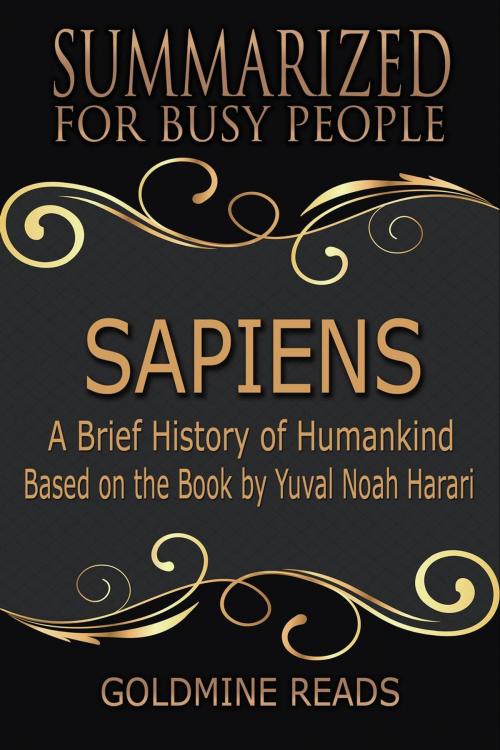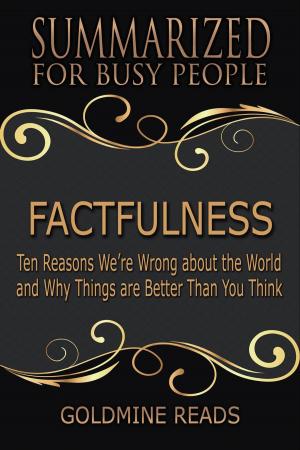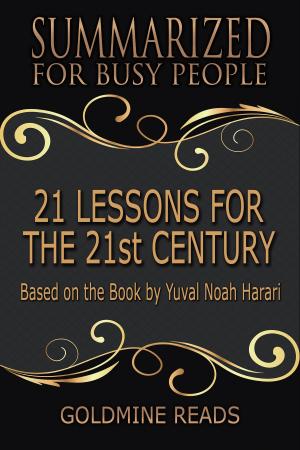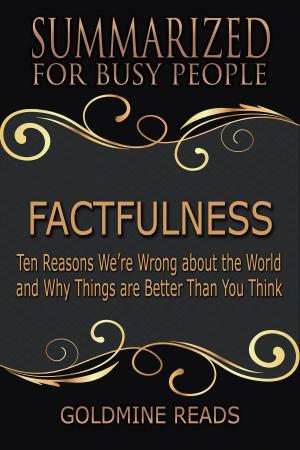Sapiens – Summarized for Busy People: A Brief History of Humankind: Based on the Book by Yuval Noah Harari
Nonfiction, Reference & Language, Reference, Research, Study Aids, Book Notes| Author: | Goldmine Reads | ISBN: | 9781386983781 |
| Publisher: | Goldmine Reads | Publication: | June 17, 2018 |
| Imprint: | Language: | English |
| Author: | Goldmine Reads |
| ISBN: | 9781386983781 |
| Publisher: | Goldmine Reads |
| Publication: | June 17, 2018 |
| Imprint: | |
| Language: | English |
This book summary is created for individuals who want to flesh out the important contents and are too busy to go through the entire original book. This book is not intended to replace the original book.
In Sapiens: A Brief History of Humankind, renowned historian Yuval Noah Harari chronicles both the creation and evolution of humankind. Harari recounts the manner in which both history and biology have defined and enriched our understanding of what truly being "human" means.
At least six different human species inhabited Earth 100,000 years ago. Today, only one remains: the Homo sapiens. What had become of the others? What would become of us?
Unlike most books that either utilize a biological or a historical approach in narrating the history of humankind, Sapiens opens at the dawn of modern cognition approximately 70,000 years ago. From how human evolution has played a part in transforming the world's ecosystem to how empires and civilizations arose, Harari integrates science and history to reexamine generally accepted ideologies, link developments in the past to the matters of the present, and evaluate detailed events in a much wider perspective.
The laws of natural selection that have governed life and evolution in the past four billion years have been overridden by humankind in only a few decades. Harari's Sapiens compels us to look forward and consider what the future holds for humankind.
We are entering a new age—an era where humans can not only successfully shape the world but also shape themselves. Where does this lead humankind? More importantly: what do you want to become?
Wait no more, take action and get this book now!
This book summary is created for individuals who want to flesh out the important contents and are too busy to go through the entire original book. This book is not intended to replace the original book.
In Sapiens: A Brief History of Humankind, renowned historian Yuval Noah Harari chronicles both the creation and evolution of humankind. Harari recounts the manner in which both history and biology have defined and enriched our understanding of what truly being "human" means.
At least six different human species inhabited Earth 100,000 years ago. Today, only one remains: the Homo sapiens. What had become of the others? What would become of us?
Unlike most books that either utilize a biological or a historical approach in narrating the history of humankind, Sapiens opens at the dawn of modern cognition approximately 70,000 years ago. From how human evolution has played a part in transforming the world's ecosystem to how empires and civilizations arose, Harari integrates science and history to reexamine generally accepted ideologies, link developments in the past to the matters of the present, and evaluate detailed events in a much wider perspective.
The laws of natural selection that have governed life and evolution in the past four billion years have been overridden by humankind in only a few decades. Harari's Sapiens compels us to look forward and consider what the future holds for humankind.
We are entering a new age—an era where humans can not only successfully shape the world but also shape themselves. Where does this lead humankind? More importantly: what do you want to become?
Wait no more, take action and get this book now!















